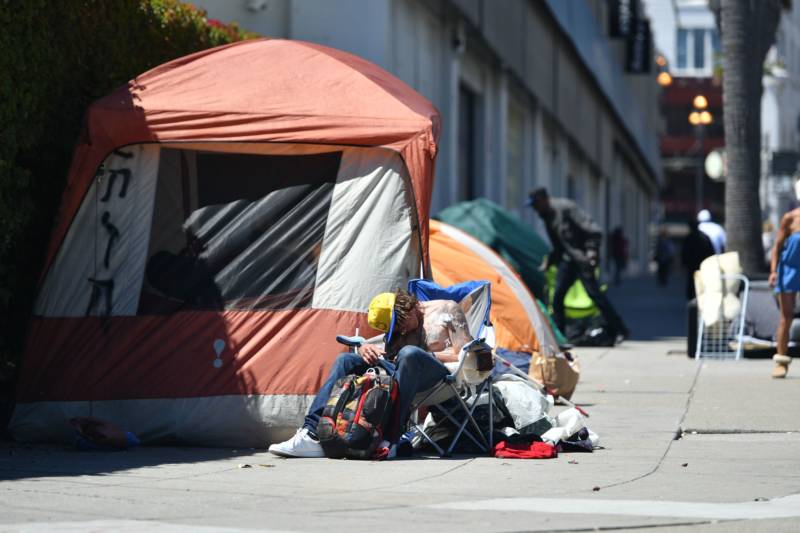State and local water regulators agreed, saying there’s no merit to the president’s accusations.
“The reality is quite the opposite,” said Karri Ving, who heads the city’s wastewater management program. “We have a system that’s robust and effective in capturing stormwater, conveying it to our treatment plants and removing any type of sediment and trash.”
It’s ironic, she added, that Trump is picking on San Francisco, which is one of the few western cities that treats its stormwater.
San Francisco has long struggled with problems of human waste and needles on the streets in the Tenderloin district, where many addicts and homeless people congregate. The city set up public toilets and last year announced the formation of a special six-person “poop patrol” team to clean up human waste.
The city also announced funding to hire people to pick up used needles.
Many of those needles came from the city itself. The health department hands out an estimated 400,000 clean syringes a month under programs designed to reduce the risk of HIV and other infections for drug users who might otherwise share contaminated needles.
“As far as I know, needle waste going into the bay has never been an issue,” Rachel Kagan, a spokeswoman for the city’s Department of Public Health, said in an email. She acknowledged that San Francisco, like many other cities, has its fair share of needle litter, but “we have made tremendous progress cleaning up needles [and] there’s no connection to the ocean or bay.”
Trump, whose two-day fundraising visit to California ended Wednesday, has been bashing California’s “liberal establishment” for the surge in homelessness.
On Tuesday, Trump said his administration “can’t let Los Angeles, San Francisco and numerous other cities destroy themselves by allowing what’s happening,” and vowed to do something about the problem. But at the time, he only mentioned creating a task force.
A day earlier, Gov. Gavin Newsom and mayors of the state’s 13 largest cities sent Trump a letter asking his administration to provide more aid to fight homelessness, including the request for an additional 50,000 housing vouchers for the poor.
But U.S. Housing and Urban Development Secretary Ben Carson rejected the housing aid request in a letter Wednesday, saying that California’s policies on law enforcement, an over-regulated housing market and sanctuary policies regarding people living in the country illegally have driven up housing costs while increasing demand.
“Your letter seeks more federal dollars for California from hardworking American taxpayers but fails to admit that your state and local policies have played a major role in creating the current crisis,” Carson wrote.
Carson said nearly 500,000 California households already receive some kind of federal housing assistance and said “federal taxpayers are clearly doing their part to help solve the crisis.”
He also said ending homelessness has been a “top priority” of the administration.
Carson toured a Potrero Hill public housing project in San Francisco on Tuesday and said he wanted to work with local governments to address homelessness.
“I don’t see any reason quite frankly why we have to have homelessness in this country,” Carson said. “Given the resources that we have. Given the intellect. The ability to innovate.”

